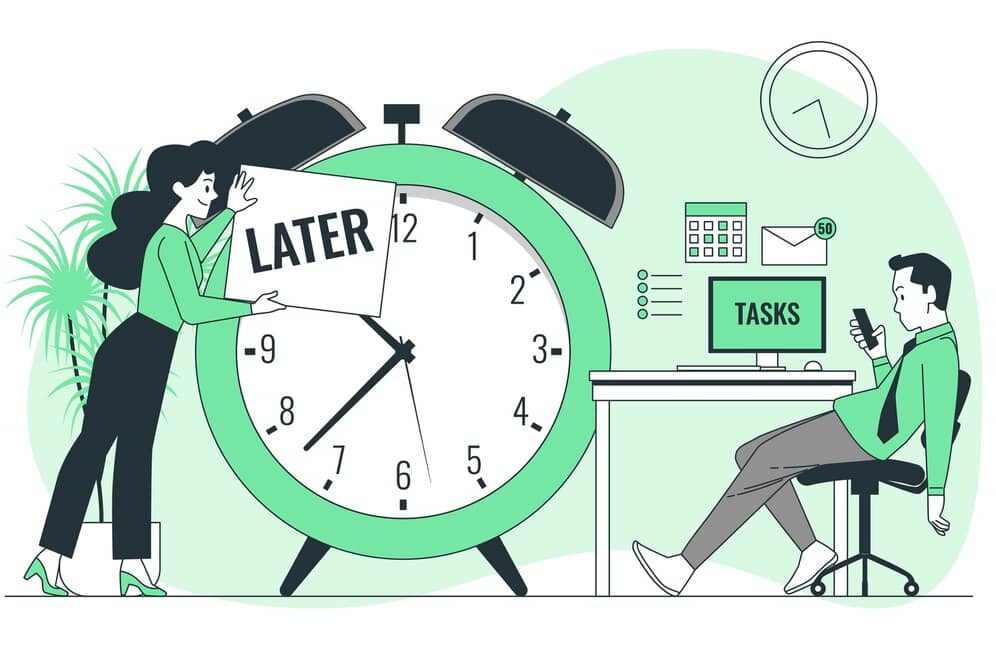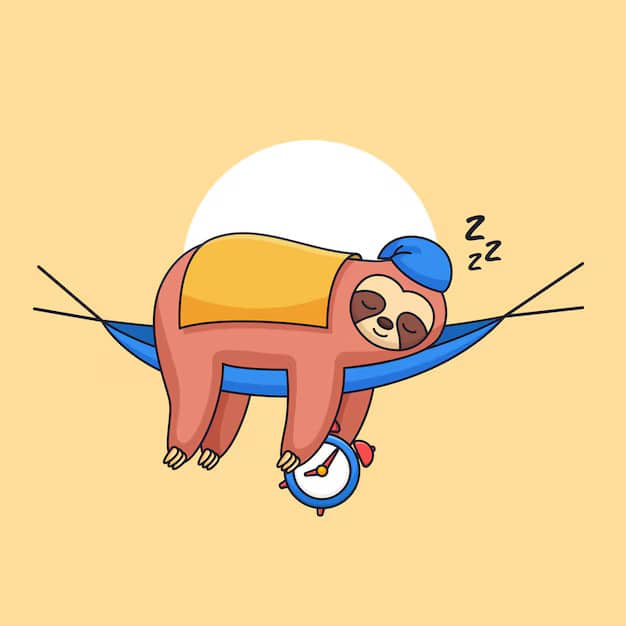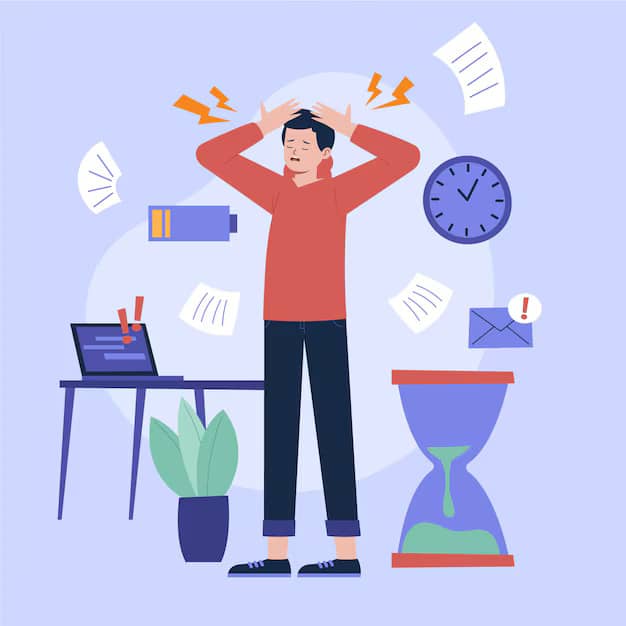Procrastination vs Lazy Behavior: Learn The Difference
Are you a serial procrastinator, or just lazy? Learn the difference between the two, and how to overcome them to achieve your goals
Are you a serial procrastinator? Have you always been called "lazy"? Ever felt like "lazy" isn't the best term to describe your behavior but couldn't really find the right way to explain the difference? If you said "yes" to these questions, then read on!
Generally, people say that serial procrastinators don't do the work because they don't care about the consequences or are too lethargic to make an effort. But what most people, including those who self-identify as procrastinators/lazy, don't understand, is that there is a crucial difference between the two behaviors. Just because you delay a task, does not mean you are lazy.

So, before writing off procrastination as laziness, let's try to nail down the major differences, identify the issues with each type of behavior, and figure out what we can do to regain our productivity.
Laziness is a Lack of Regard
Laziness involves a sense of disregard or indifference towards the task that you're supposed to be doing. Although it could be important or necessary, you don't want to make an effort to do it because it is something you find uninteresting or not worth your time—time that you'd rather spend doing anything else, including wasting it.
Laziness can also be the unwillingness to go the extra mile to ensure that the task is done in the best way possible. If it's critical, you may do the bare minimum, but no more than that. In a way, laziness is a choice because whether you put in the bare minimum effort or none at all, you are consciously choosing to do it.

Procrastination is a Lack of Self Control
Procrastination, on the other hand, is the inability to get started on a task because of something that holds you back -- fear, hesitance, or an urge to give in to distractions. If you want to do something, but keep putting it off, because you're unable to overcome your fear of failure, or of facing any challenges along the way, you end up delaying the task. People procrastinate and give in to distractions — like mindlessly scrolling through social media or binge-watching a series — and avoid having to face important work. So, while procrastination can sometimes be a choice, it is mostly characterized by the inability to control emotions and urges that prevent us from doing the work.

Key Differences Between Laziness and Procrastination
Intent and Motivation
With laziness, there is little to no intent -- you do not want to do the task. Or if it's something you can't avoid, you do only as much as you have to. The same goes for motivation -- your drive to not do the task outpaces any motivation you may have to get the work done.
With procrastination, you may intend to do the task, but probably just not at that moment because you may face reluctance, fear, or the need to finish other things and get to this at the "right time". Sometimes, you're also subconsciously aware that you will eventually complete it because you know it needs to get done. This also drives your motivation to postpone tasks.
Reasoning
The reasoning behind laziness is simple--the task may simply not be appealing to you, so you would rather avoid it completely and find other things that interest you.
With procrastination, the difference is that your reasoning revolves around "what if" or "I'll do this later"-- we can prove very persuasive in convincing ourselves to delay tasks, when procrastination takes over.
Fear of Consequences
Lazy people may or may not be aware of the consequences they'll face for not doing the work; but it doesn't make a difference because even if they did, it's not enough to push them to get it done. They may simply be more willing to deal with the consequences.
Procrastinators, on the other hand, fear failure and are often paralyzed by a looming deadline more than almost anything else -- so much so that it makes them want to avoid the task and the negative consequences for as long as possible.
What Connects a Procrastinator and a Lazy Person
So, we've seen all the things that separate laziness and procrastination, but there is also something that connects the two -- negative outcomes. The more you give into such behavior, the greater the chance of you developing chronic procrastination or chronic laziness. The outcomes are manifold--poor time management skills, low self-esteem, low-quality work, maladaptive behavior, and a major hit on your productivity. So, whether you're lazy, a procrastinator (or a lazy procrastinator), you may want to find solutions and regain your productivity soon.
How to Overcome Procrastination or Laziness
Find your "Why"
A lack of purpose is often the root cause of a person's unwillingness or reluctance to do anything. So, if you see a task that you can't or don't want to do, find the reasoning behind it. And, as a solution, find what will make you want to do it so you can move forward.
Break Down Goals to Complete Tasks
Long-term, complicated goals can often make one feel overwhelmed, and avoiding them can seem like the easiest solution. But avoidance isn't a good choice to boost our morale. So, if you have a big project, break it down into smaller, more manageable steps or tasks so they don't seem so daunting.
Not sure how to break down big goals? Try Crunch, our tool to break down complex tasks into super easy simple steps here!
Create a Plan of Action
Organization is often a great motivating factor, because you know that there is already a plan in place and you just have to follow it. So, create a schedule with realistic goals and set deadlines that you can stick to, so you don't overthink it and inadvertently make room for unnecessary delay in accomplishing your tasks. Don't forget to focus and execute the plan!
Find Motivation
What would make you want to do something--is it the promise of a reward, or perhaps a negative consequence? What works better for you -- the carrot or the stick? Figure out what will motivate you to overcome your procrastination or lazy behavior and try to build a system that connects it with important tasks. Finding out what makes your eyes gleam generally leads to a solid confidence boost!
Boost Your Confidence
Your emotional well-being needs to be strengthened to keep yourself productive. So, remember how well you can perform if you put your mind to it, and prove to yourself and others that you can do whatever task you set your mind to achieve! Keep track of everything you achieve—big and small—because they bear testament to all the effort you've put in!

Accept Success and Failure
I read somewhere that success isn't final and fear isn't fatal. It is the courage to trudge on that counts. Sounds corny, but it's true! Do your best, but accept the outcomes as they come and learn from them. If you always feel guilty after putting tasks off because you fear failure, here's an unconventional tip: maybe just give in to the guilt and get started on your task? Isn't it better to know that you gave it your best shot and couldn't have done anything more to avoid failure? Why not fear the regret of missed opportunities instead of failure?
Get Accountability
Do you feel like some external motivation could help you? Get accountability through apps and services that are all the rage in productivity platforms these days. Our friends at Beeminder and stickK, for example, can help motivate you with a threat of very real financial consequences! Or if you want a person looking over your shoulder, and giving you that pat on the back or nudge to get you back on track, you can always come to us at Boss as a Service!
How BaaS Helps You Deals with Procrastination and Laziness
At BaaS, our real, human Bosses are here to help you through whatever is holding you back -- without judgment! We will check in every day to make sure you're setting goals; our eagle eyes and proof systems also make sure you're really knocking items off of your to-do list and not procrastinating! So, try Boss as a Service today to boost your productivity.
Final Thoughts
Although there's a difference between procrastination and laziness, both can have negative consequences on your productivity. Figure out how to stop procrastinating, overcome laziness and get work done.